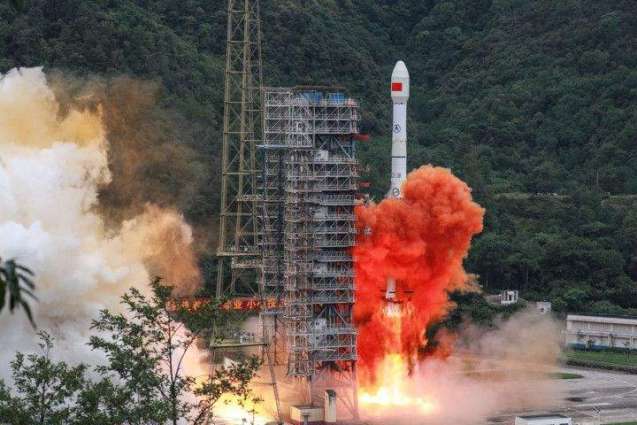The launch of China's BeiDou-3 navigation system, a rival of the United States' GPS, gives China secure global access to its military assets, after decades of relying on its strategic competitor, experts told Sputnik
MOSCOW (Pakistan Point News / Sputnik - 31st July, 2020) The launch of China's BeiDou-3 navigation system, a rival of the United States' GPS, gives China secure global access to its military assets, after decades of relying on its strategic competitor, experts told Sputnik.
Chinese President Xi Jinping announced on Friday that the Beidou-3 Navigation Satellite System is fully operational now that the 55th satellite in the constellation, launched on June 23, has completed all tests.
Vladimir Nezhdanov, a global politics expert from the Tyumen State University part of the Russian state project of academic excellence, called 5-100 told Sputnik that BeiDou's completion meant that China is no longer at risk of going offline in the event of a conflict with the US.
"In case of a military conflict, the US could cut China off GPS. But China cannot rely entirely on [Russia's] Glonass because you don't want to put all eggs in one basket. There is a risk that the US could jam satellites. In this case, the Chinese military would rely on its own navigation system," he said.
Nezhdanov said that militarization of space was a matter of time, despite the 1967 Outer Space Treaty explicitly banning military activity there.
"This treaty is very limited in terms of space arms control. The Chinese navigation system proves that China has accepted the challenge and will not let Russia and the US run the show," the expert explained.
China launched the first iteration of BeiDou in 2000. Its second version began providing navigation services to the Asia Pacific in 2012. The third-generation system consists of 35 satellites and is being marketed as an alternative to GPS, Glonass and the European Union's Galileo networks.
All four have a near-identical degree of accuracy but the Chinese network boasts some extra capabilities, Igor Lisov, a columnist with a Russian space magazine, Novosti Kosmonavtiki.
"It offers short message communication, which is not a thing in the Russian and the US navigation systems, as well as an easy-to-use secure private communication capability. It is an interesting and promising system," he said.
China opened BeiDou for civilian and commercial use in 2012. In its civilian iteration, it can run on the same devices as GPS and Galileo, Lisov said. Glonass' unique way of coding its signals sets it apart from the three networks.
The expert added that the speed with which China rolled out its fully functioning navigation system was truly impressive.
"Europe and China entered the second-wave satellite navigation race almost simultaneously. Europe is still to complete its constellation, while China has rolled out a third generation of its system in four years. It is very fast for the space industry. Neither Glonass or GPS made such speedy progress," the journalist said.
Artyom Dankov, an associate professor of global politics at the Tomsk State University also part of the 5-100 academic excellence project said that BeiDou was still more of a national network, but efforts were being made to integrate it with Russia's Glonass.
"Russia and China have an agreement on that we will cooperate and integrate our navigation systems. We will use the Chinese platform and our Chinese partners will be able to use Russian elements," he said.
For now, BeiDou is mostly relevant for China's companies, citizens and military, Dankov said, "but in terms of a global redistribution of market shares it is important to know who, beside China, plans to use this technology and how."
"It will be a new factor in the global positioning market. The launch of this powerful technology, the project's completion and the navigation system's reaching its full capacity all of this is an important step in China's technological progress," he emphasized.




